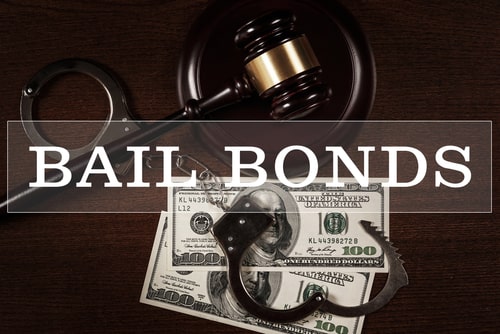What is the Role of Collateral in Bail Bonds?
 When an individual is arrested in Texas, there may be an opportunity to be released from jail on bail. Bail bonds are a common method used to secure a defendant’s release, and they often involve the use of collateral. A Texas bail bond professional can help you explore the role of collateral in bail bonds and how it can impact your situation.
When an individual is arrested in Texas, there may be an opportunity to be released from jail on bail. Bail bonds are a common method used to secure a defendant’s release, and they often involve the use of collateral. A Texas bail bond professional can help you explore the role of collateral in bail bonds and how it can impact your situation.
Make Sure You Understand What Bail Bonds Are
A bail bond is a type of surety bond offered by a bail bond professional for a defendant, ensuring their appearance in court when required. In Texas, the licensing and regulation of bail bond companies fall under the jurisdiction of the Texas Department of Insurance.
Upon posting a bail bond, the defendant is required to pay a non-refundable premium, usually 10% of the bail amount. In return, the bail bond company guarantees payment of the entire bail amount should the defendant not appear in court.
The Purpose of Collateral
Collateral is an asset pledged by the defendant or a co-signer to secure the bail bond. The primary role of collateral is to mitigate the risk taken on by the bail bond company. Should the defendant fail to appear in court, resulting in the forfeiture of the bail bond, the collateral may be seized to recover the bail amount.
Common types of collateral accepted by Texas bail bond companies include:
- Real estate
- Vehicles
- Jewelry
- Stocks and bonds
- Cash
The value of the collateral must be sufficient to cover the entire bail amount. In some cases, multiple forms of collateral may be required to secure the bond.
Collateral and Cosigners
When a defendant is unable to provide sufficient collateral, a co-signer may step in to pledge assets. A co-signer, also known as an indemnitor, is typically a family member or friend who assumes financial responsibility for the bail bond.
Co-signers must understand the obligations and the potential consequences of the defendant failing to appear in court. Should the defendant fail to appear in court, the collateral the co-signer gave could be confiscated to compensate for the bail amount that was forfeited.
Protecting Your Collateral
To protect your collateral when securing a bail bond, consider the following tips:
- Work with a reputable bail bond company licensed by the Texas Department of Insurance.
- Carefully review and understand the terms of the bail bond agreement before signing.
- Ensure that the defendant attends all required court appearances to prevent forfeiture of the bail bond.
- Maintain open communication with the bail bond company throughout the legal process.
- If the defendant appears to be a flight risk, consider withdrawing as a co-signer to protect your assets.
The Role of the Bail Bond Company
Bail bond companies play a crucial role in the collateral process. They are responsible for assessing the value and acceptability of collateral and managing the collateral throughout the duration of the bail bond.
If a defendant fails to appear in court and the bail bond is forfeited, the bail bond company will take steps to locate the defendant and bring them into custody. If the defendant cannot be located, the company may initiate the process of seizing and liquidating the collateral to cover the forfeited bail amount.
Contact a McKinney, TX Bail Bond Professional
If you want to learn more or help a loved one, a Dallas, TX bail bond agent can help. Call us at 214-747-4110 to see if the collateral you have in mind would work for your case.










